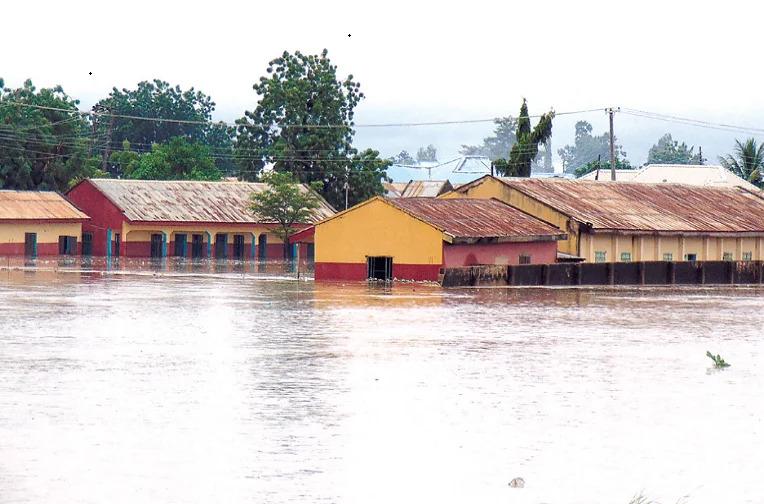The Nigerian Meteorological Agency (NiMET) has alerted residents of Kano State about the possibility of high-risk flooding in 14 out of the 44 Local Government Areas (LGAs) of the state.
Dr. Nuradeen Abdullahi, the NiMET Kano/Jigawa Territorial Coordinator, made this announcement during a Disaster Risk Management Stakeholders Coordination Meeting focused on Seasonal Climate Prediction and the Annual Flood Outlook in Kano.
Dr. Abdullahi identified the high-risk LGAs as Rimin Gado, Tofa, Kabo, Madobi, Garum Malam, Bebeji, Rano, Dawakin Kudu, Warawa, Wudil, Sumaila, Ajingi, Kura, and Dala. He also noted that five other LGAs—Karaye, Takai, Bunkure, Dawakin Tofa, and Makoda—are moderately prone to high-risk flooding.

The remaining 25 LGAs, including Doguwa, Tudun Wada, Kibiya, Garko, Albasu, Gaya, Kiru, Rogo, Gwarzo, Shanono, Tsanyawa, Bagwai, Bichi, Kunchi, Danbatta, Minjibir, Gabasawa, Gwale, Fagge, Nassarawa, Kano Municipal, Tarauni, Ungogo, Kumbotso, and Gezawa, are considered at low risk.
READ ALSO: Climate Action Africa Warns of Flooding Risk in Lagos, Calls for Climate Finance
Dr. Abdullahi emphasized that the meeting aimed to develop plans to prevent the anticipated flooding across the state. The collaboration with the Kano State Emergency Management Agency (SEMA) was deemed necessary to remind stakeholders of their responsibilities in mitigating the impacts of climate change and the costly nature of environmental disasters.
He highlighted that women and children are often the most affected during the rainy season and urged residents in flood-prone areas to take preventive measures ahead of time.
READ ALSO: NEMA Distributes Food Aid as Niger State Unveils Housing Plans for Displaced Residents
In her remarks, the state’s Commissioner for Humanitarian and Poverty Eradication, Hajiya Amina Abdullahi, announced that the State Government had established a high-powered committee led by the Deputy Governor, Malam Aminu Abdulsalam, to clear drainages across all 44 LGAs to prevent flooding.
“Careful planning for preparedness and response can significantly reduce the impact of disasters or emergencies across communities,” she stated.



